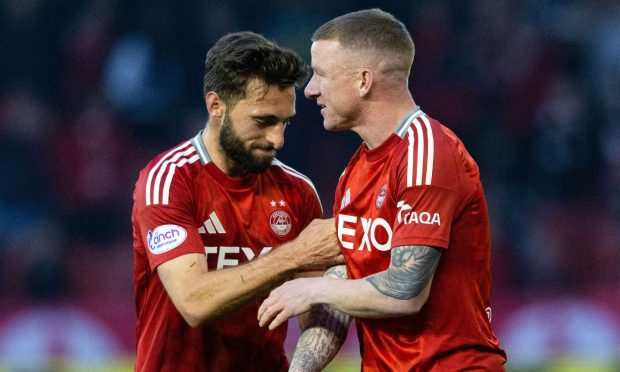If, as seems increasingly likely, this was Pittodrie’s final chance to greet Jonny Hayes and Connor Barron, it is pleasing that it should come amidst a more cordial atmosphere than looked likely through the winter months.
For both, during their tenures, have played significant roles in repairing the relationship between the region and its club.
Hayes, the rocket speed to complement the craft of Niall McGinn, is a modern day Aberdeen great, no question. The excitement generated when those names were up in Pittodrie’s lights ended a spell in which, attendance figures show, they had been relentlessly dimming over the city.
Barron’s contribution to the Reds’ cause is clearly much less substantial in its weight and import – though not to the extent that some non-believers would have it – but it has borne its own significance.
During a period in which the Dons’ squad was unprecedentedly cosmopolitan, itinerant and lacking in clear identity, it would have been easy for it to again become an irrelevance to the North-east public: what, after all, would a group of mismatched, toiling footballers from all points of the compass actually have to do with Aberdeen, besides the simple word on their shirts?
Along with Graeme Shinnie, Barron’s presence has given a recognisable face to a team which often gave little reason for its family to love it.
Should he move on, it is poignant that among the last images of Kintore’s Barron is of his arm around the shoulder of Portsoy’s Fletcher Boyd, pointing at masses of Aberdonians singing his name and urging him to savour his extraordinary moment.
This is football’s experience, and it is a shared one. Clubs belong to their people, and only they can bestow admittance upon those to whom it is a job. Jonny and Connor have earned the key.

